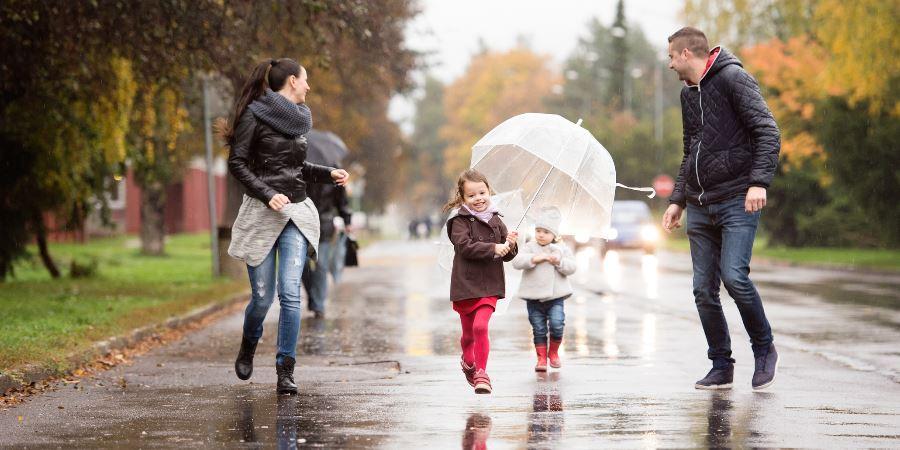When we talk to people who are thinking about fostering, we often find they rule themselves out as foster carers before they've even spoken to us.
The reality is, there's no typical foster carer. We'll try and cover the main queries people have below.
If your particular situation isn't covered, don't be shy. Get in touch with us using the contact details on this page.
Myth: I'm too old to foster
By law, you have to be aged 21 or over to be able to foster. There's no upper age limit, you just need to be fit and well enough to keep up with the children you're caring for.
We have foster carers in their 60s and 70s, so don't be put off by a number.
Our amazing Holt family have been fostering for us since 1976. They started in their 20s and are still fostering with us in their 70s.
Myth: I must be in a heterosexual relationship to foster
We're an inclusive fostering service. We encourage foster carers to come forward whether they're single, male or female, in a relationship, divorced, widowed, Lesbian, Gay, Bisexual and Transgender (LGBT+), cohabiting, married or any other possible combination you can think of.
There are no barriers based on gender, sexuality or relationship status. Children are diverse and we need a diverse foster carer community to meet their needs.
Myth: I must own my own home to foster
There's no requirement to own your own home. You need a stable and child-friendly place to live, whether this is rented or owned makes no difference.
A spare bedroom is needed to accommodate a child living with you. We usually discourage you from asking your birth children to share a room, as this can cause resentment towards a child who is placed in their own room.
Myth: I must have parented before to be able to foster
Already being a parent is not a requirement for becoming a foster carer. Many people have experience with children either through work, friends or extended family relationships and these are all valuable experiences.
When anyone becomes a parent for the first time, whether this is through having birth children or through fostering or adoption, they have to learn and adjust to their new role.
Even people who have parented in the past find that their children are individuals and may need a different approach.
What matters is your ability to be child-centred and to embrace your new role, accepting support and guidance while you adjust to becoming a foster carer.
Myth: I have a criminal conviction so I'm unable to foster
There are very few convictions that would mean you're unable to foster. We'd discuss with you the circumstances of your conviction, what happened and how long ago it took place and work with you to decide if it would be a barrier to fostering.
Often people have been involved in some criminal activity with friends as young adults and have moved on with their lives since then.
The reality is some of our young people get involved in antisocial behaviour or even with the police, whether they're in foster care or not. Having a foster carer with some insight into the challenges of being a teenager, and that people don't always make the right choices, can actually be a benefit and enable you to support them when they're facing challenges.
Myth: I have health problems so that means I'm unable to foster
Part of the fostering assessment is a medical check. This is done with your own doctor and we pay any costs incurred for this.
The majority of health conditions wouldn't be a barrier to fostering. We'd discuss with you how your health issue affects your daily life and work with you to decide what type of fostering or what child's age range would be the best fit for your situation.
Myth: I smoke so that means I'm unable to foster
Smoking cigarettes is a barrier to fostering children under the age of 5. This is because of the effects of second and third-hand smoke on children. If someone in your household smokes, you would be limited to caring for children aged 5 or older.
The use of e-cigarettes is not a barrier. We'll discuss with you keeping vape liquids safely out of reach and the impact of role modelling on children.


